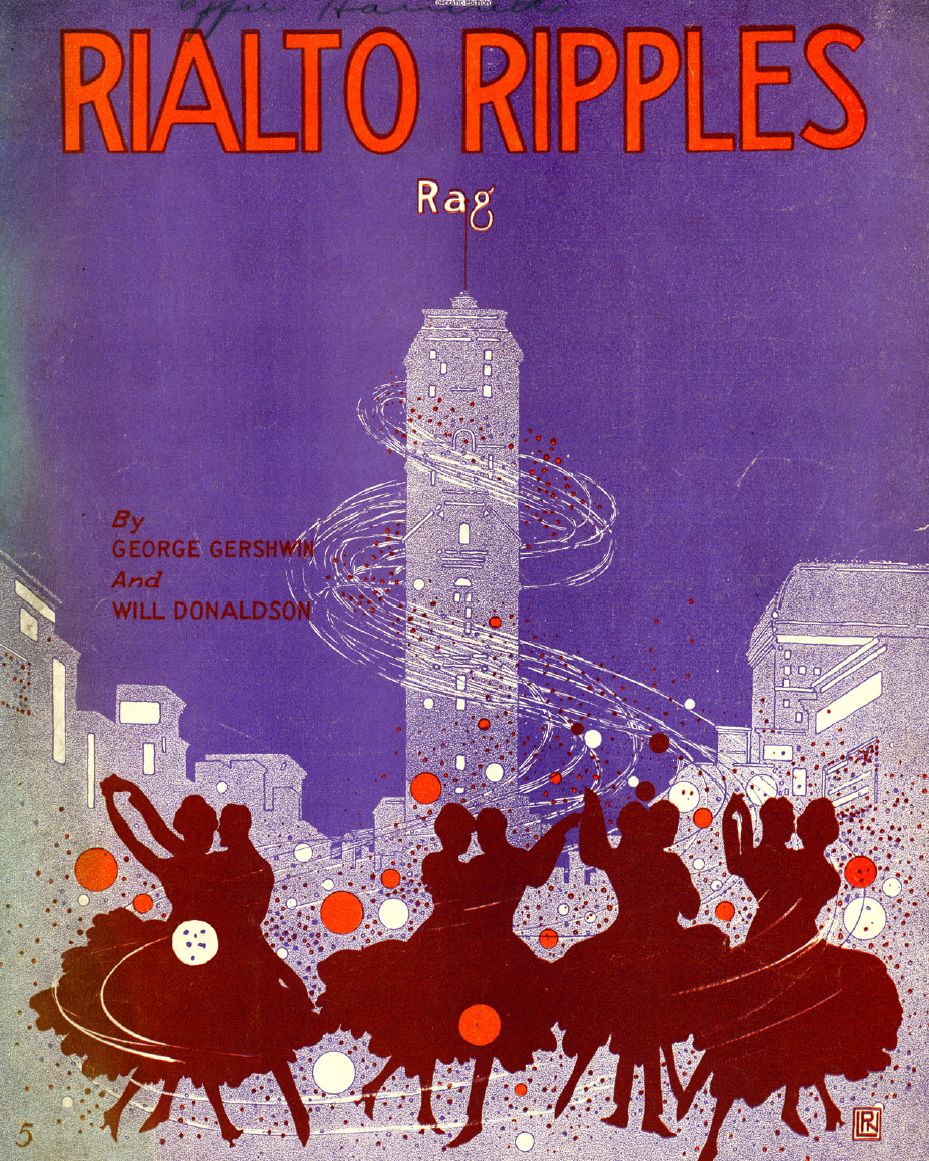

The JV Music Store: If Your Question Has the Word Music in It, Look No Further!
Welcome to the JV Music store! We are your source for finding arrangements for Brass Quintet, Brass Ensembles, Concert Band and more.
All our arrangements are by Jari Villanueva, a former member of the Air Force, where he served for 23 years with the United States Air Force Band in Washington, DC. During his time in the band, he held various roles, including trumpeter, bugler, assistant drum major, staff arranger, and music copyist. He is regarded as the country’s foremost expert on military bugle calls, particularly the call of Taps, which is played at military funerals.
Rialto Ripples by George Gershwin for Jazz Band
Rialto Ripples by George Gershwin for Jazz Band Arranged by Jari Villanueva
Full Score
Clarinet
Alto Sax
Tenor Sax
2 Trumpets
2 Trombones
Violin
Piano
Banjo
Tuba
Drums
SCORE AND PARTS DOWNLOADED UPON PAYMENT
This early Gershwin composition was co-created by George and fellow Remick’s Publishing employee Will Donaldson. “Rialto Ripples” is a ragtime novelty piece written in 1916 and published in 1917, the year Scott Joplin passed away. It wasn't a major hit for Gershwin, although the piano roll version he recorded shows remarkable dexterity and speed for a young man of seventeen.
Having worked at Remick’s music publishing company for two years, “Rialto Ripples” was the first of George’s works that they agreed to publish. After quitting high school at the age of fifteen to work as a song plugger for Remick’s, George spent his workdays sitting at a piano, demonstrating to customers how the sheet music sounded. Through this intensive experience, he was exposed to a wide range of popular songs. He would analyze his favorite songs, like those by Jerome Kern, to understand why they succeeded the way they did.
Not every song was a Kern, though, and after two years at Remick’s, George was growing tired of playing the standard popular songs, which often felt predictable and harmonically dull to him. “It was now that the popular-song racket began to get definitely on my nerves… I was a most unhappy lad at Remick’s.”
This is not George’s first instrumental composition. That honor goes to a Tango from 1914 that is now considered lost.
